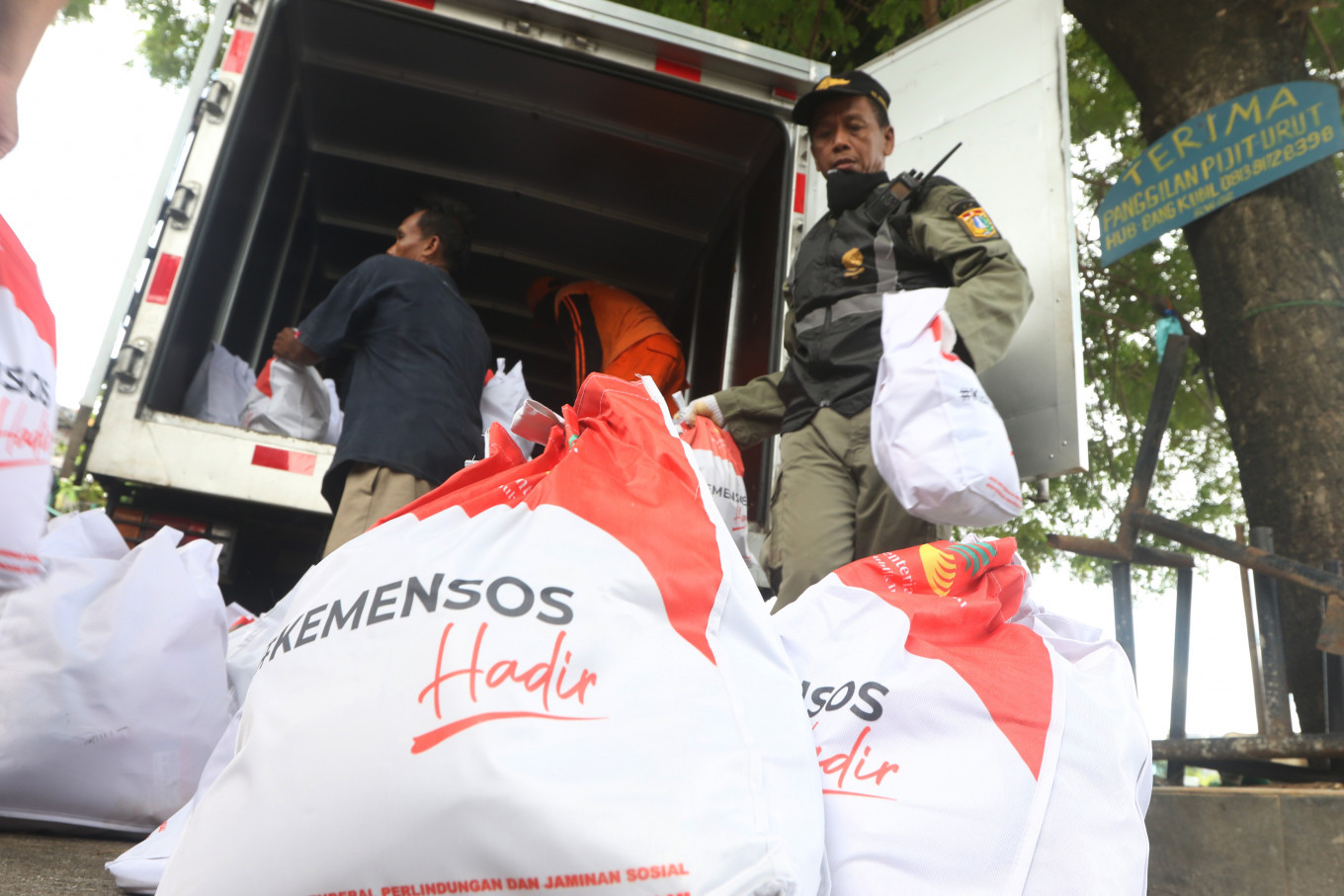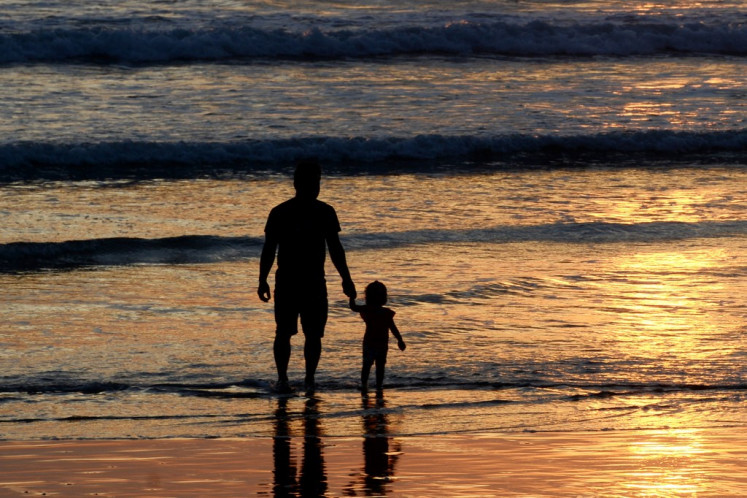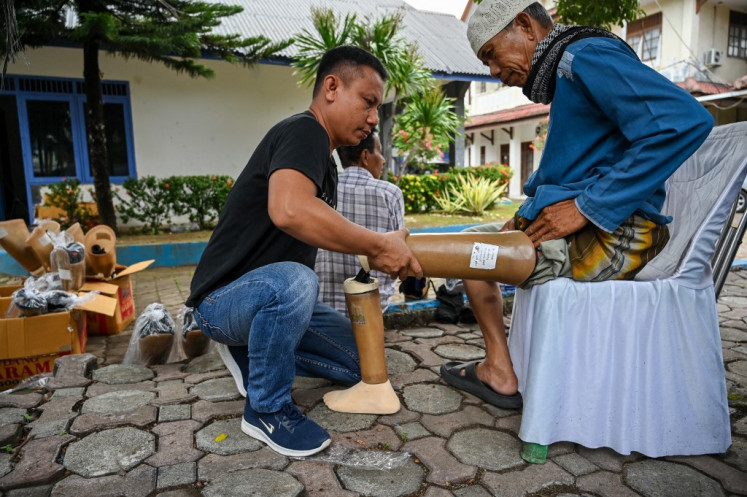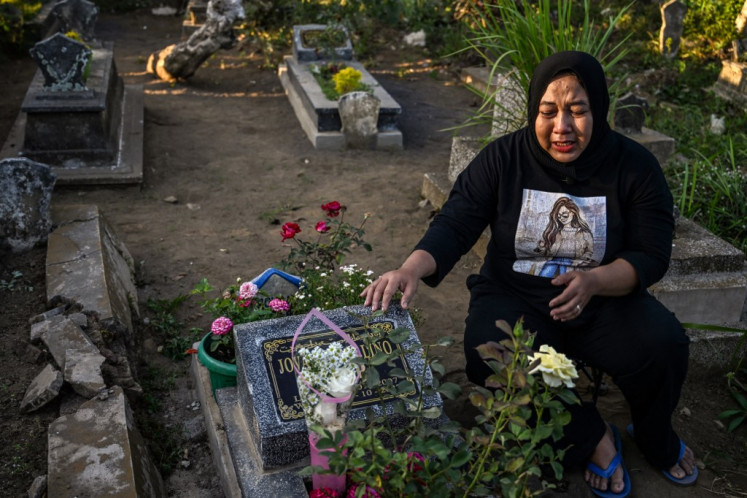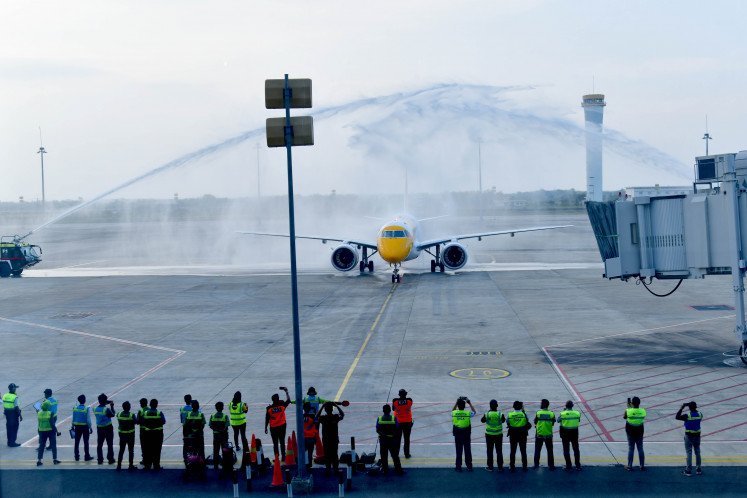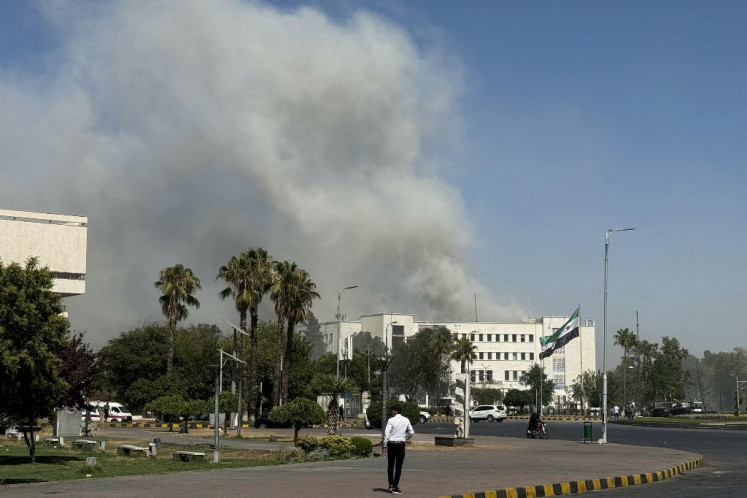Popular Reads
Top Results
Can't find what you're looking for?
View all search resultsPopular Reads
Top Results
Can't find what you're looking for?
View all search resultsInsight: Don’t forget the middle class in social protection programs
In particular, Indonesia needs to further increase the number of people who can receive government assistance – and identify these people in new ways – as the COVID-19 economic shock affects members of the middle class.
Change text size
Gift Premium Articles
to Anyone
T
he world has been transformed. Countries have temporarily, and somewhat frantically, shuttered their economies in the hope of slowing the spread of COVID-19. And even those countries that have not implemented severe lockdowns are being battered by the coming global recession.
Indonesia faces these same challenges. Greater Jakarta is under a large-scale social distancing regime, while many other districts nationwide debate how to respond. The economic costs of the crisis are starkly visible, as millions may already be experiencing food insecurity.
Given the challenging and quickly transforming environment, it is vital to expand social protection. When people are “locked down”, or practicing some form of social distancing even without a lockdown order, they are unable to earn a living, and unable to meet basic needs.
The Indonesian government rightly reacted quickly. For example, the government rapidly increased aid distributed through the Family Hope Program (PKH) and the Sembako Program and is making electricity free for households with 450 VA and 900 VA connections.
Even more is needed. In particular, Indonesia needs to further increase the number of people who can receive government assistance – and identify these people in new ways – as the COVID-19 economic shock affects members of the middle class.
Many of the government’s “typical” social protection programs, such as the PKH and Sembako Program, are geared toward the poor. Targeting in these programs is based on a household’s assets. This makes sense for antipoverty programs – these assets reflect long-term poverty well.
But, these programs miss workers who have recently been hit with a major shock, such as lost wages or lost income from business. In fact, many lowermiddle class workers were gainfully employed just a month ago but now have no income. Many do not have enough savings to get by if they lose their income.
These are precisely the people who are not covered by existing programs: Just because you don’t live in a house with a dirt floor doesn’t mean you have enough savings to feed your family if you lose your income.
Without help to manage these tough times, many of these families will be thrust back into poverty, reducing the gains Indonesia has made over the last 20 years in poverty reduction. There is also a risk of social unrest.
What can the government do? We suggest three ideas.
First, the government recently announced the new preemployment card program, rapidly altered to help deal with the crisis. The program provides online training and incentives of Rp 600,000 (US$38.52) per month for four months and it is aimed at more than 5 million unemployed people.
This program is a terrific start. It can be improved further by quickly increasing funding to expand the number of individuals who can access it.
The training component can also be further improved. Having some training is important. It can help improve skills when the economy opens. And, equally importantly, asking people to sign up for, and complete, a training program can be used as a mechanism to identify those most in need.
That said, a key benefit of online training is that it can be scaled cheaply. It doesn’t cost much more to deliver an online training course to 10,000 people as it does to deliver it to 1,000 people. Since the training will all be online, the portion of funding that goes toward training can be reduced dramatically as the program scales up. The money can instead be used to increase cash benefits.
A second option is to work with the Home Ministry, telecom firms and banks to identify the lowermiddle class through their cell phone records. Transfers could then be made through phone credit or e-wallets, which could be converted to digital wallets that can be used to purchase goods or cash out.
Most SIM cards can be linked to national identity numbers (NIK), so the government can use this to make sure to cover only those households that aren’t already receiving support under other programs and make sure nobody receives a transfer more than once. While the government might not normally want to do this for privacy reasons, it may want to consider doing so temporarily as an emergency response.
This program could be automatic – e.g. everyone who is identified receives it – or the government could further target it by asking for applications from the unemployed and using this data as part of a verification process.
A third option may be to identify individuals through community-based targeting. Previous research in Indonesia has shown that communities are good at identifying those most in need – not only in rural areas, but urban areas as well. These communities can be leveraged now to identify households hardest hit by the CO VID-19 economic shock.
Providing transfers to communities that can redistribute within – with clear guidelines on doorto-door distribution through the neighborhood unit network that respects physical distancing – can be an effective way to quickly reach the lower-middle class.
Given the unprecedented health and economic crises that have been brought about by COVID-19, society is making sacrifices to protect health and well-being. However, it is important that this burden is not disproportionally felt by the most vulnerable of society, and that no one is left behind.

